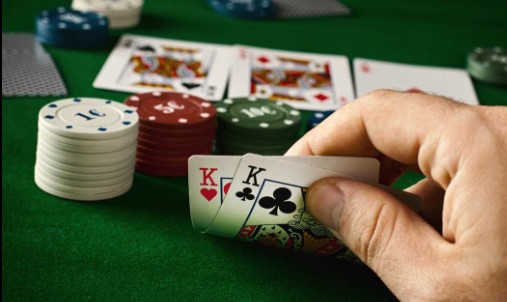You owe Uncle Sam a piece of your gambling winnings, no matter how much you won
You may win a few dollars here and there, but you will leave the casino with more money than you brought. It could be as small as $20 or as large as $1,000. You were not provided with a form to declare the winnings to IRS when cashing out. You might be wrong to think that you are free from taxes. You owe Uncle Sam an equal share of the action as a U.S. citizen regardless of how much you pay. Many players believe that they are free to go home because they didn’t receive a tax form. This is not true.
What information is required to be reported to the IRS? You can win larger amounts at casinos, lottery retailers and horse racing tracks, and off-track betting parlors. You will receive a W-2G form for you and one for the IRS. Here are some details:
Machine Games
$1,200 or more was won on a video slot machine, video poker game, video keno, blackjack, etc. This applies only to one jackpot payout amount. Credit meter wins are not considered to be cumulative credits.
A W-2G will be issued to any player who wins $1,200 or more in a live bingo game. Likewise, $1,500 or less at a live Keno game will trigger a W-2G (minus any wager amounts).
If you have a valid photo ID or social security number, the casino will not withhold gambling taxes from awards between $1,200 and $1,500. You will lose 28% if you don’t provide the information.
Live Table Games
Winnings from live tables games cannot be reported on a W-2G unless there is a large prize, such as a dollar wager for a chance at a progressive jackpot. These winning odds are more than 300/1 and the winner is more than $600. Caribbean Stud, for $1, offers a large progressive jackpot if you are lucky enough to win a Royal Flush.
The establishment will give you a W-2G if you win more than $600 in other online betting games such as horse racing, dog racing, or sports betting. In addition, 25% withholding will apply to winnings exceeding $5,000 or more than 300 times the bet amount. This same percentage applies to cash prizes of $5,000 or more in poker tournaments or card tournaments, minus the buy-in.
You can win winnings in state lottery games like lotto, numbers and scratch-offs. You can collect your winnings at any local retailer for up to $600. If you collect more than that, you will need to visit your local lottery office, where you can also get a W-2G. This information comes from the New York lottery. Different rules may apply in other states.
Daily Fantasy Sports (DFS), contest winners are games of skill. Therefore, for winnings exceeding $600, DFS sites will issue a 1099MISC and not a W-2G.
Video Lottery Terminals
W-2G will be issued to anyone who wins more than $600 from any class II video lottery Terminal game. This includes winnings from machines operated by state lottery jurisdictions. New York State, for example, has nine race tracks that have VLT’s that can be pseudo-slot or video poker machines.
Deductions
All of this means that gambling losses can be tax-deductible, but only up to the amount you win. But, of course, this is only if your tax return includes itemized deductions.
To ensure that you have not lost more than you claim, the IRS requires you to keep a detailed record of your losses. Most casinos will provide win-loss statements at the end of the first year if you used your player club card to play at machines. In addition, you can save your losing scratch-off tickets and Mega-Millions tickets.
The IRS is currently unsure of the position regarding losses in Daily Fantasy Sports contests. Your winnings fall under the hobby category because of the skill factor. Therefore, any losses are not deductible. However, this could change at any moment.
The tickets don’t need to be recorded on your tax statements, but they might be required if you are being audited. The IRS only needs to know the type of wager, the amount, and the transaction date.
Play it safe and consult your tax preparer about your personal needs.
